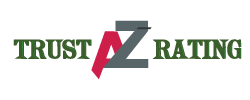Yes, you can sue Chase Bank if you believe they have violated any laws or breached their contractual obligations. However, it is important to consult with a lawyer who specializes in banking and finance law to assess the strength of your case. Lawsuits against banks can be complex and require extensive evidence to prove wrongdoing. It is advisable to gather all relevant documents and records to support your claim. Remember, the outcome of a lawsuit can vary depending on the specific circumstances and the legal arguments presented.
How do Chase claims work?
Once a customer identifies an issue with their transaction, they contact their card issuer, which is the bank supporting their card. They explain the problem and request a refund. The issuer investigates the claim’s accuracy. If the claim is deemed unreasonable, the customer is responsible for the payment, and your settlement funds remain unaffected. However, if the customer’s claim appears reasonable, the issuer provides a temporary credit payment to the customer and initiates the chargeback process. During this process, the card issuer obtains funds from the respective payment brand, who then debits the funds from Chase. Consequently, Chase debits the funds from your settlement account. Subsequently, Chase notifies you about the chargeback through documentation or by opening a case in the free online chargeback management system if your business subscribes to it.
Does Chase refund stolen money?

Chase Sapphire Preferred Card offers a range of benefits and rewards. With an annual fee of $95, this card provides an introductory offer of 60,000 bonus points when you spend $4,000 on purchases within the first three months of opening your account.
In terms of rewards, you can earn 5x points on all travel purchased through Chase Ultimate Rewards, 3x points on dining (including eligible delivery services, takeout, and dining out), 3x points on select streaming services, 3x points on online grocery purchases (excluding Target, Walmart, and wholesale clubs), 2x points on other travel, and 1x point per dollar on all other purchases.
Additionally, the Chase Sapphire Preferred Card offers purchase protection, which can assist in repairing, replacing, or reimbursing items that were recently purchased with an eligible Chase card or with rewards earned on an eligible Chase card.
To learn more about the Chase Sapphire Preferred Card and its full details, you can visit Chase’s website.
Is Chase Bank a good bank?

NerdWallet rating:
JPMorgan Chase, the largest bank in the country, offers a wide range of services and products, including mortgages, auto loans, and a diverse selection of credit cards. Its website experience is on par with online-only banks, and it ranked second in the 2022 JD Power US National Banking Satisfaction Study.
Chase provides a solid basic checking account, but its savings rates are low, and there are some high and unavoidable fees.
Best for: Customers who value access to a large number of branches, are not focused on earning the highest interest rates, and can maintain a sufficient balance to avoid monthly fees.
Pros:
– Over 4,700 branches and approximately 16,000 ATMs.
– Easy to avoid monthly fees on basic savings accounts.
– Bonus offer available on checking accounts.
Cons:
– High monthly fees.
– $3 fee for non-Chase ATMs in the US for basic checking accounts.
– Low rates on CDs.
– Low rates on savings.
What was the Chase Bank scandal?

CBS Mornings – Financial Scam Leaves Small Business Owner Devastated
Deborah Moss, the owner of a small catering business, fell victim to a sophisticated bank scam that began with a seemingly harmless text message. Moss, who had spent over a decade building her business, had finally saved enough money to pursue a peaceful life in rural Guerneville, California. However, her dreams were shattered when she received a text message claiming to be from her bank, Chase, regarding an unauthorized $35 debit card charge from another state. Initially dismissing it as a minor inconvenience, Moss replied to the message.
Shortly after responding, Moss received a call from someone claiming to be a representative from Chase Bank. The caller ID displayed the bank’s name, and the individual identified herself as Miss Barbara from Chase ATM. She requested permission from Moss to issue a new debit card to resolve the alleged fraudulent charge. Miss Barbara instructed Moss to read the numbers from a subsequent text message back to her over the phone to verify her identity.
Moss complied and repeated the numbers to Miss Barbara, who thanked her for the information. Over the next week, Miss Barbara called Moss multiple times, each time claiming there was a problem with the card’s delivery and asking Moss to verify her identity by reading back the numbers from subsequent text messages.
It wasn’t until Moss visited her nearest bank branch that she discovered the devastating truth. A supervisor informed her that her account had been drained, leaving her life savings of nearly $160,000 completely depleted.
Moss’s ordeal highlights the increasing trend of fraud and the alarming financial losses suffered by Americans. Reported losses reached a staggering $88 billion last year, marking a 30% surge from the previous year, according to government data.
The text messages Moss received were authentic, as they were sent by Chase Bank as part of its two-factor authentication system designed to enhance customer security. However, the scammers deceived Moss into revealing the numbers over the phone, enabling them to bypass security measures and transfer large sums of money from her account. In just one week, they conducted six wire transfers, some as high as nearly $48,000.
Moss filed a police report and submitted a claim to Chase Bank in hopes of recovering her stolen funds. However, her claim was denied after a five-week wait. Chase Bank appeared to fault Moss, stating in a letter that she did not take appropriate steps to protect her account from theft or unauthorized use. The bank refused to reimburse her account, leaving Moss devastated and feeling betrayed.
JPMorgan Chase, in response to the incident, stated that Moss’s account was compromised due to scammers deceiving her and obtaining her personal confidential information. The bank also provided tips for consumers to protect themselves, such as not sharing personal account information, verifying calls with the bank’s official number, and avoiding suspicious links in texts or emails.
David Weber, a certified fraud examiner and forensic accounting professor, believes that Chase Bank bears responsibility for failing Moss and neglecting to implement stronger security measures. He argues that the current two-factor authentication systems, including text messages, are insufficient in combating the increasingly sophisticated tactics employed by scammers.
JPMorgan Chase emphasizes its commitment to combating fraud and scams, stating that it invests significant resources in authentication, risk models, technology, and client education. However, they acknowledge that preventing these scams requires a collaborative effort involving law enforcement, the private sector, government, and educated consumers.
In conclusion, Moss’s story serves as a stark reminder of the growing threat of financial scams and the need for stronger security measures to protect consumers from falling victim to these sophisticated schemes.
Who is Chase’s biggest competitor?
When considering whether to invest in JPMorgan Chase & Co stock or its competitors, it is important to evaluate the main players in the finance sector. Some notable competitors of JPMorgan Chase & Co include Bank of America, Wells Fargo & Company, HSBC, Morgan Stanley, Royal Bank of Canada, American Express, HDFC Bank, Prologis, Toronto-Dominion Bank, and The Goldman Sachs Group. These companies are all significant players in the finance industry.< h2>Who is the number 1 bank in America?
|
RANK |
BANK NAME |
TOTAL ASSETS |
PREVIOUS RANK |
|---|---|---|---|
|
1 |
JPMorgan Chase |
$3.27 trillion |
1 |
|
2 |
Bank of America |
$2.52 trillion |
2 |
|
3 |
Citigroup |
$1.72 trillion |
3 |
|
4 |
Wells Fargo |
$1.69 trillion |
4 |
|
5 |
U.S. Bancorp |
$590.46 billion |
5 |
|
6 |
Truist Bank |
$564.84 billion |
7 |
|
7 |
PNC Financial Services |
$556.31 billion |
6 |
|
8 |
Goldman Sachs |
$490.80 billion |
8 |
|
9 |
Capital One Financial |
$469.43 billion |
9 |
|
10 |
TD Group US Holdings |
$401.25 billion |
10 |
|
11 |
Bank of New York Mellon |
$341.46 billion |
11 |
|
12 |
State Street |
$287.07 billion |
12 |
|
13 |
BMO Harris |
$265.45 billion |
N/A |
|
14 |
First Republic Bank |
$232.94 billion |
14 |
|
15 |
Citizens Financial |
$221.96 billion |
13 |
Conclusion
Conclusion:
In conclusion, Chase Bank has both positive and negative aspects that should be considered when evaluating its overall performance. While the bank does offer some level of protection against stolen money through its fraud protection services, it is important for customers to be proactive in monitoring their accounts and reporting any suspicious activity promptly. The bank’s response to the Chase Bank scandal, where it was found to have engaged in unethical practices, was to implement changes and pay significant fines. However, this incident raises concerns about the bank’s commitment to ethical behavior and customer trust.
Chase claims work by allowing customers to file a claim for various reasons, such as unauthorized transactions or errors in account balances. The bank then investigates the claim and makes a determination on whether to refund the money or not. While this process can be time-consuming and may require providing supporting documentation, it is an essential avenue for customers to seek resolution for any financial discrepancies.
When it comes to competition, Chase Bank faces stiff competition from several other major banks in the United States. One of its biggest competitors is Bank of America, which offers similar services and has a comparable nationwide presence. Other notable competitors include Wells Fargo, Citibank, and JPMorgan Chase’s investment banking division. These competitors constantly strive to attract customers with competitive interest rates, innovative digital banking solutions, and superior customer service.
Ultimately, whether Chase Bank is a good bank or not depends on individual needs and preferences. The bank offers a wide range of financial products and services, including credit cards, mortgages, and investment options. However, customers should carefully consider the bank’s track record, including the Chase Bank scandal, and weigh it against their own priorities and values. Conducting thorough research and comparing Chase Bank with its competitors can help individuals make an informed decision about whether it is the right bank for them.
Sources Link
https://www.nerdwallet.com/reviews/banking/chase
https://finance.yahoo.com/news/15-largest-banks-us-160040404.html
https://www.businessinsider.com/personal-finance/chase-purchase-protection
https://www.cbsnews.com/news/bank-scam-text-message-chase-bank/
https://www.chase.ca/en/support/managing-your-account/chargebacks
https://www.marketbeat.com/stocks/NYSE/JPM/competitors-and-alternatives/
You are watching: can i sue chase bank
